Events
| Name | organizer | Where |
|---|---|---|
| MBCC “Doing Business with Mongolia seminar and Christmas Receptiom” Dec 10. 2025 London UK | MBCCI | London UK Goodman LLC |
NEWS
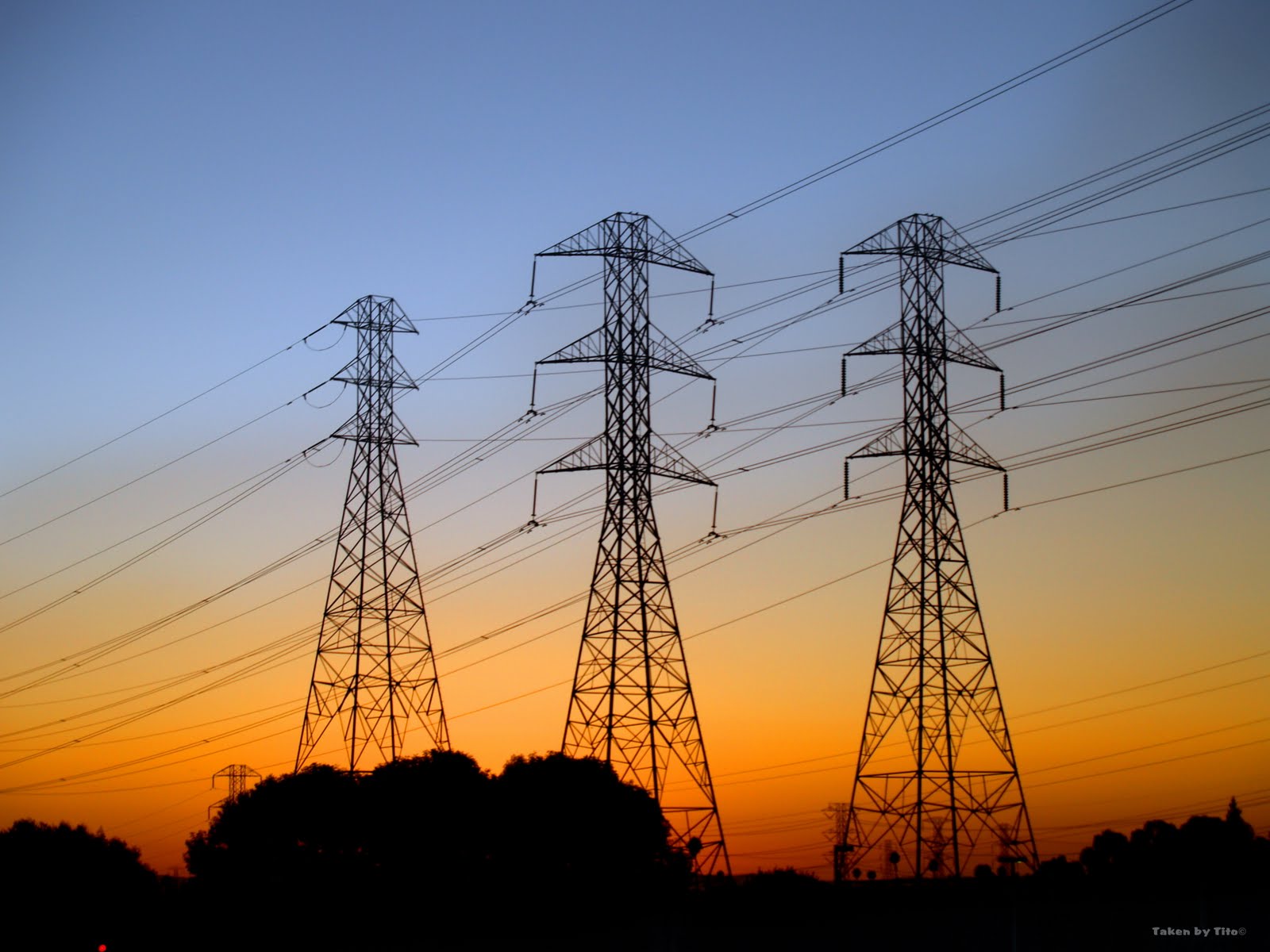
Mongolia renewable energy target: Powerful 2030 Vision www.pvknowhow.com
Mongolia Renewable Energy Target: Transitioning from Coal
Mongolia is aggressively pursuing a cleaner energy future, aiming to generate 30% of its electricity from renewable sources by 2030. This marks a significant shift from its current heavy reliance on coal, which accounts for approximately 94% of its electricity generation. This transition is not just an environmental imperative but also a strategic move to diversify its energy sources and boost economic development.
The Mongolian government has taken concrete steps to facilitate this transition, including a ban on the construction of new coal-fired power plants. Efforts are underway to actively reduce coal’s dominance in the national energy mix. According to CNE, Mongolia’s current installed renewable energy capacity stands at 257 MW. Reaching the 2030 target requires a substantial increase, adding approximately 1,200 MW of wind power and 1,300 MW of solar power. Mongolia’s abundant natural resources and vast open spaces, coupled with an average of 3,000 sunlight hours per year—making it one of the sunniest countries globally—create an ideal environment for renewable energy projects. A recent report highlights some of the critical challenges facing renewable energy development, including grid infrastructure and policy frameworks (Renewable Energy Barriers: 5 Critical Challenges Revealed).
Mongolia Renewable Energy Target: Strategic Development Plans
Mongolia has outlined ambitious plans to significantly expand its renewable energy sector. The government’s roadmap targets 1,200 MW of installed renewable energy capacity by 2025, increasing to 2,300 MW by 2030, and further scaling up to an impressive 8,300 MW by 2050. These goals are supported by active pursuit of investments in renewable energy projects, forging partnerships with international organizations and private companies to develop large-scale wind and solar initiatives. More insights into Mongolia’s renewable energy market can be found in this report: Mongolia Solar Panel Manufacturing | Market Insights Report.
A prime example of Mongolia’s commitment is the Tsetsii wind farm, a 50 MW facility located in the Gobi Desert, capable of powering approximately 30,000 homes. Beyond reducing reliance on coal, renewable energy development is a catalyst for economic growth, with the potential to create thousands of jobs, particularly in rural areas with limited opportunities. Furthermore, Mongolia is exploring the potential of exporting renewable energy to its neighbors, China and Russia, both of which have significant clean energy demands. This strategy could generate revenue and strengthen regional economic ties. Mongolia renewable energy exports: 5 Extraordinary Projects explores this potential further.
Overcoming Challenges to Achieve Mongolia’s Renewable Energy Target
Despite the promising progress, Mongolia faces challenges in achieving its renewable energy ambitions. A major hurdle is the lack of adequate infrastructure to support large-scale renewable energy projects. Investments in new transmission lines and energy storage systems are crucial for efficient distribution of renewable energy. Mongolia renewable energy 2025: 5 Essential Steps for Success outlines some key strategies.
A stable and encouraging regulatory environment is also essential to attract investment. While the government has implemented policies and incentives to attract foreign investors, creating a robust long-term framework to support sustainable growth in the renewable energy sector remains a priority.
Mongolia’s transition to renewable energy represents both an environmental necessity and an economic opportunity. By striving to achieve its 30% renewable energy target by 2030, Mongolia serves as an example for other nations seeking to reduce their dependence on fossil fuels. While the journey is ongoing, the progress to date is encouraging, and with continued investment and government support, Mongolia is poised to become a leader in the global renewable energy landscape.
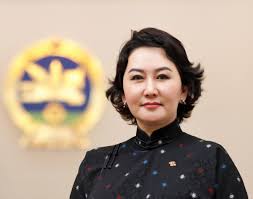
Minister for Foreign Affairs of Mongolia Batmunkh Battsetseg to visit Finland www.valtioneuvosto.fi
Minister for Foreign Affairs Elina Valtonen will meet with Minister for Foreign Affairs of Mongolia Batmunkh Battsetseg in Helsinki on 1 August.
The foreign ministers will discuss bilateral relations between Finland and Mongolia, regional issues, including the role of the OSCE, and the current international situation.
Minister Batmunkh Battsetseg will be in Finland from 30 July to 1 August and will take part in the Helsinki+50 Conference.
“This is the first visit to Finland by a Mongolian foreign minister. It is a pleasure to get to know Foreign Minister Battsetseg. We have many things in common, such as our strong focus on promoting the rights of women and girls through multilateral cooperation. I look forward to hearing Mongolia’s views on China, Russia and the situation in the Korean Peninsula,” says Minister for Foreign Affairs Elina Valtonen.
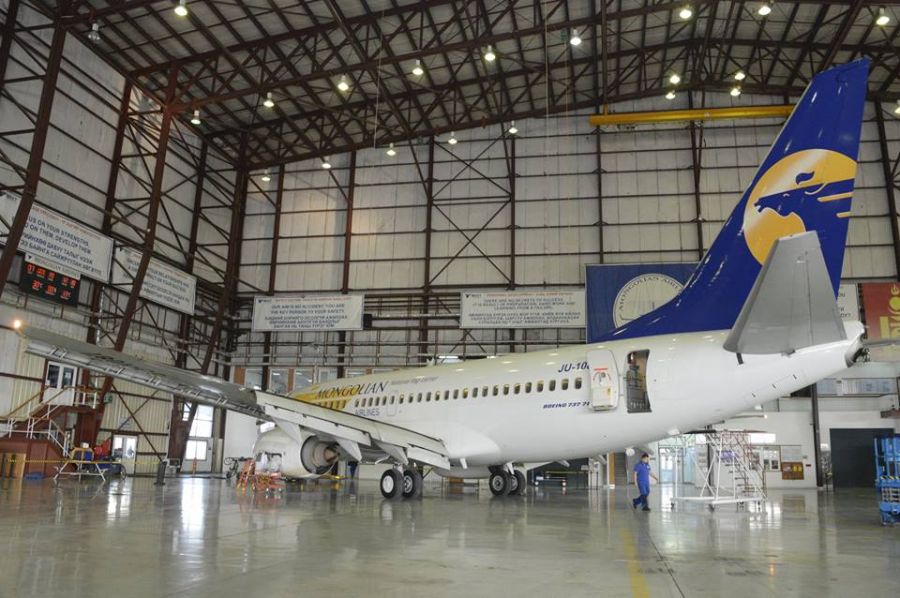
MIAT’s New “Irves” Aircraft Arrives in Mongolia After Covering 12,265 km www.montsame.mn
A Canada-manufactured Bombardier CRJ-700 aircraft arrived in Mongolia on July 30, 2025, having covered 12,265 kilometers from Johannesburg, the Republic of South Africa.
According to the National Flag Carrier MIAT Mongolian Airlines, the company has expanded its fleet with a second CRJ-700 aircraft. The airline has been operating its first CRJ-700, named Mazaalai, since 2024 on routes to Hohhot, Inner Mongolia Autonomous Region of the People's Republic of China, and other domestic destinations. The newly arrived aircraft has been named "Irves" and will also be used for short-haul operations.
The Bombardier CRJ-700 aircraft consumes an average of 1.5 tonnes of fuel per hour, with a per-seat fuel consumption rate of 21.4 liters per seat. The cabin is designed with spacious legroom, wider seating, and expanded overhead storage, offering enhanced passenger comfort.
Equipped with advanced aerodynamic design and modern GE CF34 turbofan engines, the aircraft delivers up to 61.3 kN of thrust during takeoff. In addition to its geographical adaptability, long-range capability, and fuel efficiency, the aircraft features low greenhouse gas emissions, aligning with MIAT’s commitment to environmentally responsible operations.
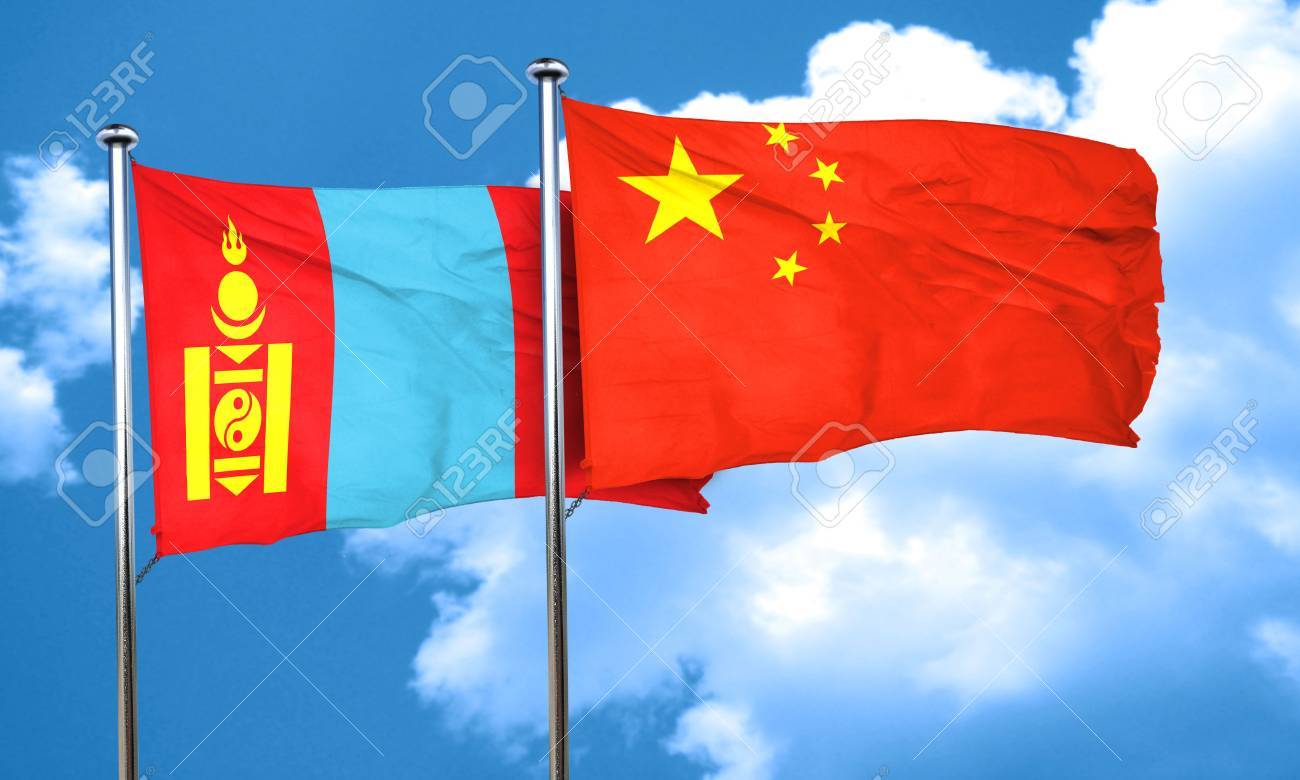
5th China-Mongolia Expo to boost regional cooperation www.xinhuanet.com
The 5th China-Mongolia Expo, scheduled from Aug. 25 to 29 in Hohhot, capital of north China's Inner Mongolia Autonomous Region, will focus on deepening mutually beneficial cooperation and promoting win-win collaboration, Vice Minister of Commerce Yan Dong told a press conference on Wednesday.
Yan noted that the biennial expo is an international event jointly organized by the governments of China and Mongolia, welcoming participants from across the globe.
This year's expo will highlight regional development, openness and diversity, striving to create a new platform for China's northward opening, a new link for regional industrial chain and supply chain cooperation, and a new fulcrum for regional cooperation in northeast Asia, according to Yan.
Data shows that trade volume between China and Mongolia reached a record high of 18.62 billion U.S. dollars in 2024, marking a 10.1 percent year-on-year increase, Yan said.
Through joint efforts from both sides, the scope of bilateral investment has continued to expand, covering not only traditional areas such as mining, manufacturing and livestock processing but also emerging sectors like the digital economy and green energy.
The two sides have jointly promoted the upgrading of the cross-border economic cooperation zone, cross-border railways, and border infrastructure, achieving positive progress.
Over the years, China has helped Mongolia in building numerous infrastructure, production and livelihood projects, while also providing training to more than 9,700 professionals across various fields, contributing to Mongolia's economic and social development.
Over 3,000 enterprises from 35 countries and regions attended the 4th China-Mongolia Expo.
...
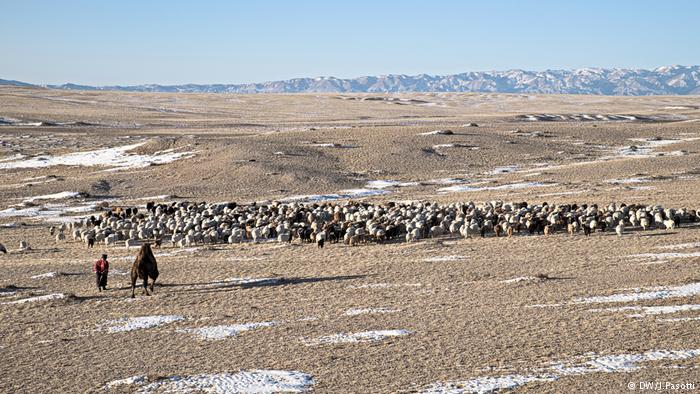
Five Aimags Classified as High-Risk for Drought www.montsame.mn
According to a nationwide general assessment for drought risk, Uvurkhangai, Bayan-Ulgii, Umnugobi, Khovd, and Dornogobi aimags were identified as high-risk for drought.
The National Emergency Management Agency (NEMA) conducted the assessment based on this year’s summer weather forecasts, drought outlook, statistics, and other data. As a result of the comprehensive assessment, the following aimags were evaluated as low-risk: Uvs, Zavkhan, Arkhangai, Gobi-Altai, Bayankhongor, Tuv, Uvurkhangai, Dornod, Dundgobi, Darkhan, Selenge, central Khentii, Bulgan, Khuvsgul, and Orkhon.
For 330 soums across 21 aimags, the risk for drought was classified as follows:
25 soums – very high;
52 – high;
130 – medium;
29 – low;
2 – very low.
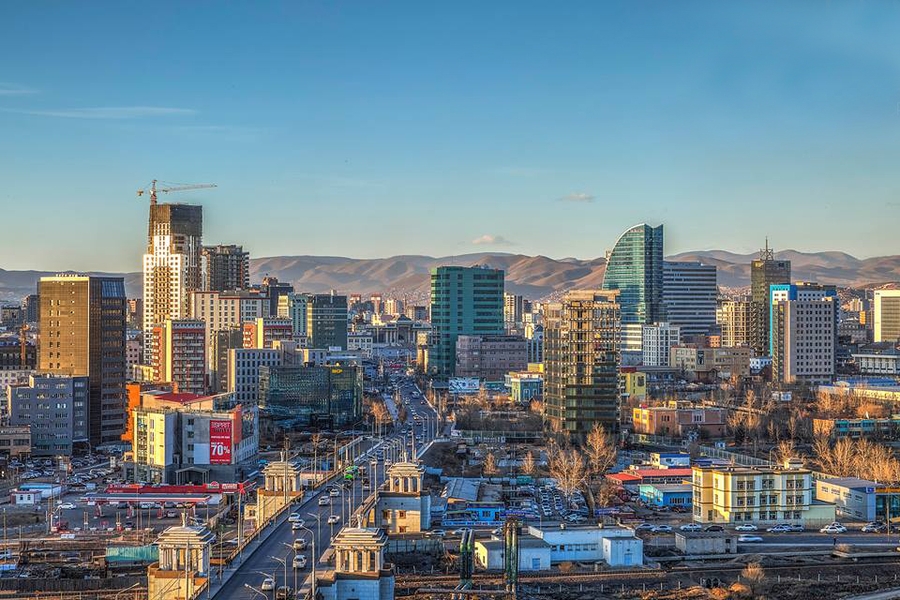
SEACEN forum focuses on future-ready central bank workforce www.ubpost.mn
The Seventh Southeast Asian Central Banks (SEACEN) Human Resources Conference and the 45th SEACEN HR Directors’ Meeting were held in Ulaanbaatar from July 21 to 25, bringing together HR leaders and experts from central banks across the region.
This year’s event focused on the theme “Human Resources 2030: Shaping the Future of Work - Central Bank Workforce Capacity Development and Future-proofing Policies in the Era of Digital Transformation”. The discussions centered on how central banks can adapt their human resource strategies to a rapidly evolving digital landscape and prepare their institutions to lead in the future of work.
The conference featured two main panel sessions and four breakout discussions, addressing key topics such as capacity building, talent retention, leadership in the digital age, and aligning workforce strategies with technological innovation.
Participants examined what policies and practices are needed to build resilient, agile, and future-ready central bank workforces. By sharing insights and experiences, the SEACEN member institutions aim to identify common challenges and develop coordinated recommendations.
Beyond fostering dialogue, the meeting served as a platform to strengthen regional cooperation in central banking HR development. Delegates worked to formulate actionable conclusions that can support the joint implementation of progressive human resource strategies across SEACEN countries.
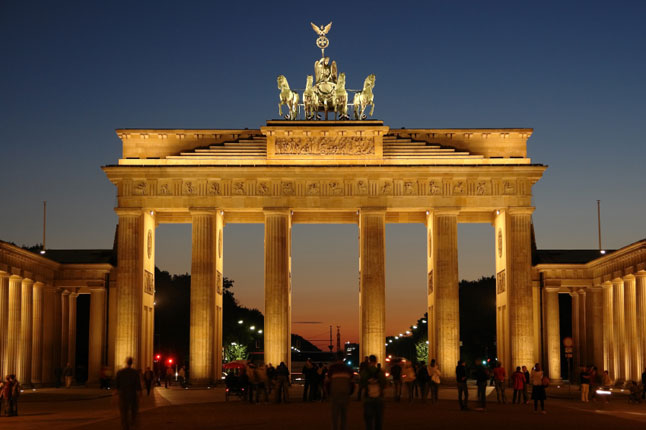
39 Mongolian Students to Study in Germany Under “President's Scholar - 2100” Program www.montsame.mn
The Ministry of Education has reported that, starting from the 2025–2026 academic year, 39 students will study in the Federal Republic of Germany under the "President's Scholar - 2100" program, initiated by President of Mongolia Khurelsukh Ukhnaa.
Ambassador of the Federal Republic of Germany to Mongolia Helmut Rudolf Kulitz and Foreign Policy Advisor to President of Mongolia Odbayar Erdenetsogt received the students and wished them academic success in their studies abroad.
The students will pursue bachelor’s degrees in the German language in fields that are in high demand in Mongolia. Upon completion of their studies, they are required to return and work in their home country for a minimum of five years.
The Government is working to send 296 students abroad this year to study in the Federal Republic of Germany, the People's Republic of China, the Republic of Hungary, the Republic of Türkiye, Japan, and the United Kingdom of Great Britain and Northern Ireland.
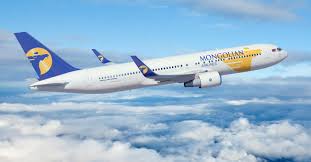
Mongolian flag carrier to start non-stop flights between Singapore and Ulaanbaatar from Nov 4 www.straitstimes.com
SINGAPORE – Travellers will be able to fly directly between Singapore and the Mongolian capital of Ulaanbaatar from Nov 4, with the launch of a non-stop service between the two cities by MIAT Mongolian Airlines.
The state-owned national carrier announced the new route on social media on July 22, adding that the flights will operate twice a week – on Tuesdays and Saturdays – strengthening the airline’s network.
The flight from Singapore will leave at 7.25pm and arrive in Mongolia at 2.55am. The return flight from Ulaanbaatar will leave at 10.35am local time and arrive in Singapore at 6pm.
Tickets are on sale, and checks by The Straits Times show that economy-class seats are priced as low as $385.60. However, the flights are available only during winter until March 26, 2026, for now.
According to its website, MIAT will use a Boeing 767 plane for the 7½-hour flight. The twin-aisle jet has 15 business-class seats and 237 seats in economy.
Booking information indicates that the airline will operate out of Changi Airport Terminal 1, but ST understands that this has not yet been finalised.
MIAT previously flew between Singapore and Ulaanbaatar in 2014 via Beijing, but the service was short-lived.
...
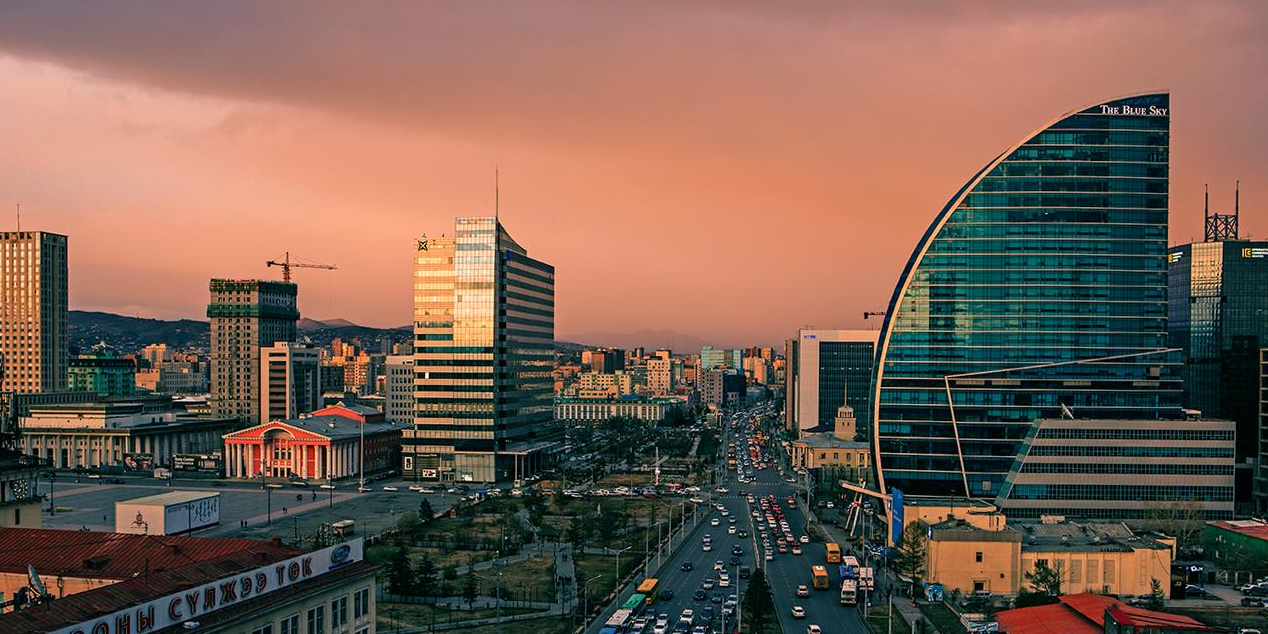
When China sneezes, Mongolia catches a cold www.intellinews.com
The US–China trade war has slowed China’s economic outlook, with direct knock-on effects for Mongolia.
Although China’s economy grew by 5.3% y/y in the first half of 2025, several key indicators showed signs of strain. Imports fell by 2.7%, signalling a weakening of domestic demand, particularly for raw materials. Coal imports dropped 11.1% to 221.7mn tonnes, while real estate investment plunged 11.2% amid continued housing market weakness.
The slowdown in construction has reduced demand for key raw material imports, including coal and metals from Mongolia. Private investment declined by 0.6% and foreign direct investment fell 13.2% compared to the same period in 2024. Profits for large industrial enterprises also slipped 1.1%, suggesting fewer new construction projects in the near future.
Mongolia's economic fortunes have boomed in recent years thanks to Chinese demand for its natural resources, but, particularly where coal is concerned, the boom times could be over (Credit: US Library of Congress, public domain).
This contraction in Chinese demand poses a serious risk to resource-exporting Mongolia, which relies heavily on China as its primary market.
Mongolia's economic structure represents one of the world's most dangerous concentrations of risk. With over 90% of exports destined for China, and mining accounting for 92.1% of total exports, 31.6% of state revenue and 28.7% of GDP, Mongolia has essentially become an economic satellite of its southern giant neighbour. This dependency means that any downturn in Chinese industrial activity translates almost immediately into Mongolian economic distress.
Even worse, not only have export volumes decreased, but coal prices have also fallen. Coal dropped to $110.40 per tonne on July 18, 18.28% lower than a year ago.
Going into 2025, the World Bank projected Mongolia’s economy would grow by 6.3%, driven by rising copper production and a gradual agricultural recovery after a harsh winter dzud (the deadly freeze particular to Mongolia) that killed millions of livestock. However, early indicators suggest a significant deterioration. The country’s 1Q25 growth dropped to 2.4%, the weakest reading seen in three years.
Overall, exports fell by 17.2% y/y, while the manufacturing expansion slowed across all key sectors.
Mongolia is heavily dependent on imports from China and to a lesser extent from Europe and Russia, for finished goods and daily necessities, including shampoo, vegetables and many food items. As a result, imports outpaced exports, with Mongolia recording a trade deficit of $521.9mn in January, and inflation climbing to 9.1% by March.
The medium-term outlook (2026–2027) forecasts stable growth averaging 5.2%, though consumption is expected to slow due to weaker income growth and persistent inflation.
Household debt is also rising rapidly, particularly in urban areas, prompting authorities to increase reserve requirements to 11% and 16% to contain risks.
Mongolia's external debt reached $37.1bn in 4Q24. That represented 157.4% of GDP. With the country’s population standing at around 3.5mn, the debt translates to approximately $10,600 per capita, one of the world's highest ratios.
Despite Mongolia’s well-executed external debt refinancing and awarded credit rating upgrades, the IMF warns that Mongolia's external vulnerabilities, high external debt and weak external buffers leave it vulnerable to external shocks.
Currently, the central bank, the Bank of Mongolia, only has enough foreign exchange reserves to cover 3.3 months of imports. At the same time, foreign debt has to be serviced in US dollars, and the main source of dollars for Mongolia is exports. However, with exports declining, there will be fewer dollars available to pay off the debt. Compounding the problem, the Mongolian currency, the tughrik, or MNT, is losing value against the dollar, making it increasingly expensive to service the interest on Mongolia’s foreign debt.
In an attempt to mitigate the financial pressures and diversify export markets, Mongolia signed a draft three-year trade agreement with the Russia-led Eurasian Economic Union (EEU) in March. The EEU represents a $14.5bn market comprising Armenia, Belarus, Kazakhstan, Kyrgyzstan and Russia, and this partnership is part of Mongolia's broader strategy to reduce economic dependence on China and diversify beyond mining.
The deal covers 375 goods, allowing Mongolia to export primarily agricultural and animal-based products while importing fruits, chemicals and manufacturing components.
The EEU initiative aligns with Mongolia’s Vision 2050 strategy, which aims to transform the country into a leading Asian economy by improving quality of life, boosting economic growth and shifting away from raw material exports. The agriculture sector, despite employing a large share of the population, contributes minimally to both GDP and trade. Expanding agricultural exports is seen as a key step toward value-added production and economic resilience.
However, political instability poses challenges to long-term economic planning. In June, Prime Minister Oyun-Erdene Luvsannamsrai and his coalition government were ousted following youth-led protests demanding transparency. While internal party dynamics played a role, the unrest highlighted growing public frustration with corruption and elite disconnect.
The ruling Mongolian People’s Party (MPP) now controls both parliament and the executive branch, raising concerns over accountability. The government’s collapse may delay industrial projects, including mineral processing facilities, and spook foreign investors.
Still, the EEU deal presents a strategic opportunity for Mongolia to broaden its trading partners, reduce its reliance on China amid global trade realignments, and move toward a more diversified, export-driven economy. However, it is not a complete solution. The overall size of the EEU market is not sufficient to compensate for the potential loss of China as a major export partner or a severe decline in Chinese imports.
BY
Antonio Graceffo, PhD, China-MBA, is an economist and analyst. He has spent over 20 years living in Asia, including seven years in China, three in Taiwan and four in Mongolia. He conducted post-doctoral studies in international trade at the School of Economics, Shanghai University, and holds a PhD from Shanghai University of Sport and a China-MBA from Shanghai Jiaotong University. Antonio has authored seven books on Asia, with a focus on the Chinese economy
...
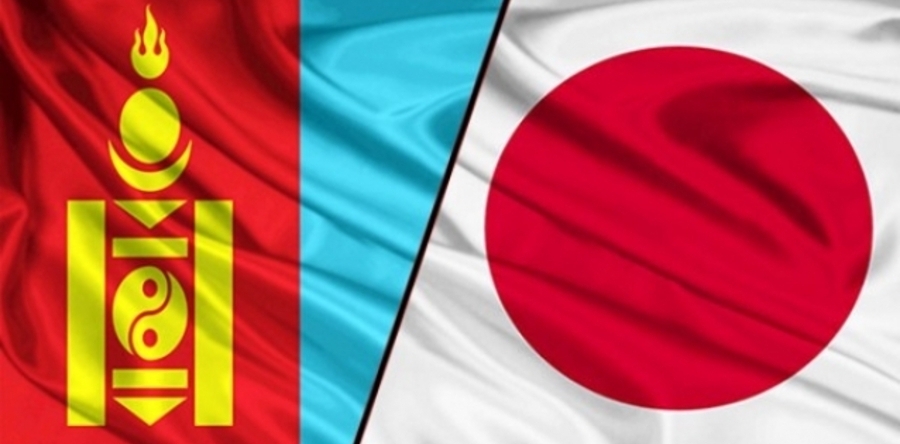
Mongolia–Japan International Business Innovation Forum to Be Held on August 18 www.montsame.mn
The Japan International Cooperation Agency (JICA) will organize the “Mongolia–Japan International Business Innovation Forum” under the theme “Creating the Future Together” on August 18, 2025, at the Mongolian National Chamber of Commerce and Industry (MNCCI).
The forum, aimed at strengthening bilateral investment and human resource development, advancing technological innovation and agricultural machinery, and expanding new business opportunities between Mongolia and Japan, will be organized for the fourth year. The event annually draws over 400 participants from Mongolia and more than 150 delegates and business representatives from Japan.
The forum will serve as a platform for domestic entrepreneurs to present their businesses, establish connections with Japanese and Mongolian partners, and explore potential cooperation.
- «
- 1
- 2
- 3
- 4
- 5
- 6
- 7
- 8
- 9
- 10
- 11
- 12
- 13
- 14
- 15
- 16
- 17
- 18
- 19
- 20
- 21
- 22
- 23
- 24
- 25
- 26
- 27
- 28
- 29
- 30
- 31
- 32
- 33
- 34
- 35
- 36
- 37
- 38
- 39
- 40
- 41
- 42
- 43
- 44
- 45
- 46
- 47
- 48
- 49
- 50
- 51
- 52
- 53
- 54
- 55
- 56
- 57
- 58
- 59
- 60
- 61
- 62
- 63
- 64
- 65
- 66
- 67
- 68
- 69
- 70
- 71
- 72
- 73
- 74
- 75
- 76
- 77
- 78
- 79
- 80
- 81
- 82
- 83
- 84
- 85
- 86
- 87
- 88
- 89
- 90
- 91
- 92
- 93
- 94
- 95
- 96
- 97
- 98
- 99
- 100
- 101
- 102
- 103
- 104
- 105
- 106
- 107
- 108
- 109
- 110
- 111
- 112
- 113
- 114
- 115
- 116
- 117
- 118
- 119
- 120
- 121
- 122
- 123
- 124
- 125
- 126
- 127
- 128
- 129
- 130
- 131
- 132
- 133
- 134
- 135
- 136
- 137
- 138
- 139
- 140
- 141
- 142
- 143
- 144
- 145
- 146
- 147
- 148
- 149
- 150
- 151
- 152
- 153
- 154
- 155
- 156
- 157
- 158
- 159
- 160
- 161
- 162
- 163
- 164
- 165
- 166
- 167
- 168
- 169
- 170
- 171
- 172
- 173
- 174
- 175
- 176
- 177
- 178
- 179
- 180
- 181
- 182
- 183
- 184
- 185
- 186
- 187
- 188
- 189
- 190
- 191
- 192
- 193
- 194
- 195
- 196
- 197
- 198
- 199
- 200
- 201
- 202
- 203
- 204
- 205
- 206
- 207
- 208
- 209
- 210
- 211
- 212
- 213
- 214
- 215
- 216
- 217
- 218
- 219
- 220
- 221
- 222
- 223
- 224
- 225
- 226
- 227
- 228
- 229
- 230
- 231
- 232
- 233
- 234
- 235
- 236
- 237
- 238
- 239
- 240
- 241
- 242
- 243
- 244
- 245
- 246
- 247
- 248
- 249
- 250
- 251
- 252
- 253
- 254
- 255
- 256
- 257
- 258
- 259
- 260
- 261
- 262
- 263
- 264
- 265
- 266
- 267
- 268
- 269
- 270
- 271
- 272
- 273
- 274
- 275
- 276
- 277
- 278
- 279
- 280
- 281
- 282
- 283
- 284
- 285
- 286
- 287
- 288
- 289
- 290
- 291
- 292
- 293
- 294
- 295
- 296
- 297
- 298
- 299
- 300
- 301
- 302
- 303
- 304
- 305
- 306
- 307
- 308
- 309
- 310
- 311
- 312
- 313
- 314
- 315
- 316
- 317
- 318
- 319
- 320
- 321
- 322
- 323
- 324
- 325
- 326
- 327
- 328
- 329
- 330
- 331
- 332
- 333
- 334
- 335
- 336
- 337
- 338
- 339
- 340
- 341
- 342
- 343
- 344
- 345
- 346
- 347
- 348
- 349
- 350
- 351
- 352
- 353
- 354
- 355
- 356
- 357
- 358
- 359
- 360
- 361
- 362
- 363
- 364
- 365
- 366
- 367
- 368
- 369
- 370
- 371
- 372
- 373
- 374
- 375
- 376
- 377
- 378
- 379
- 380
- 381
- 382
- 383
- 384
- 385
- 386
- 387
- 388
- 389
- 390
- 391
- 392
- 393
- 394
- 395
- 396
- 397
- 398
- 399
- 400
- 401
- 402
- 403
- 404
- 405
- 406
- 407
- 408
- 409
- 410
- 411
- 412
- 413
- 414
- 415
- 416
- 417
- 418
- 419
- 420
- 421
- 422
- 423
- 424
- 425
- 426
- 427
- 428
- 429
- 430
- 431
- 432
- 433
- 434
- 435
- 436
- 437
- 438
- 439
- 440
- 441
- 442
- 443
- 444
- 445
- 446
- 447
- 448
- 449
- 450
- 451
- 452
- 453
- 454
- 455
- 456
- 457
- 458
- 459
- 460
- 461
- 462
- 463
- 464
- 465
- 466
- 467
- 468
- 469
- 470
- 471
- 472
- 473
- 474
- 475
- 476
- 477
- 478
- 479
- 480
- 481
- 482
- 483
- 484
- 485
- 486
- 487
- 488
- 489
- 490
- 491
- 492
- 493
- 494
- 495
- 496
- 497
- 498
- 499
- 500
- 501
- 502
- 503
- 504
- 505
- 506
- 507
- 508
- 509
- 510
- 511
- 512
- 513
- 514
- 515
- 516
- 517
- 518
- 519
- 520
- 521
- 522
- 523
- 524
- 525
- 526
- 527
- 528
- 529
- 530
- 531
- 532
- 533
- 534
- 535
- 536
- 537
- 538
- 539
- 540
- 541
- 542
- 543
- 544
- 545
- 546
- 547
- 548
- 549
- 550
- 551
- 552
- 553
- 554
- 555
- 556
- 557
- 558
- 559
- 560
- 561
- 562
- 563
- 564
- 565
- 566
- 567
- 568
- 569
- 570
- 571
- 572
- 573
- 574
- 575
- 576
- 577
- 578
- 579
- 580
- 581
- 582
- 583
- 584
- 585
- 586
- 587
- 588
- 589
- 590
- 591
- 592
- 593
- 594
- 595
- 596
- 597
- 598
- 599
- 600
- 601
- 602
- 603
- 604
- 605
- 606
- 607
- 608
- 609
- 610
- 611
- 612
- 613
- 614
- 615
- 616
- 617
- 618
- 619
- 620
- 621
- 622
- 623
- 624
- 625
- 626
- 627
- 628
- 629
- 630
- 631
- 632
- 633
- 634
- 635
- 636
- 637
- 638
- 639
- 640
- 641
- 642
- 643
- 644
- 645
- 646
- 647
- 648
- 649
- 650
- 651
- 652
- 653
- 654
- 655
- 656
- 657
- 658
- 659
- 660
- 661
- 662
- 663
- 664
- 665
- 666
- 667
- 668
- 669
- 670
- 671
- 672
- 673
- 674
- 675
- 676
- 677
- 678
- 679
- 680
- 681
- 682
- 683
- 684
- 685
- 686
- 687
- 688
- 689
- 690
- 691
- 692
- 693
- 694
- 695
- 696
- 697
- 698
- 699
- 700
- 701
- 702
- 703
- 704
- 705
- 706
- 707
- 708
- 709
- 710
- 711
- 712
- 713
- 714
- 715
- 716
- 717
- 718
- 719
- 720
- 721
- 722
- 723
- 724
- 725
- 726
- 727
- 728
- 729
- 730
- 731
- 732
- 733
- 734
- 735
- 736
- 737
- 738
- 739
- 740
- 741
- 742
- 743
- 744
- 745
- 746
- 747
- 748
- 749
- 750
- 751
- 752
- 753
- 754
- 755
- 756
- 757
- 758
- 759
- 760
- 761
- 762
- 763
- 764
- 765
- 766
- 767
- 768
- 769
- 770
- 771
- 772
- 773
- 774
- 775
- 776
- 777
- 778
- 779
- 780
- 781
- 782
- 783
- 784
- 785
- 786
- 787
- 788
- 789
- 790
- 791
- 792
- 793
- 794
- 795
- 796
- 797
- 798
- 799
- 800
- 801
- 802
- 803
- 804
- 805
- 806
- 807
- 808
- 809
- 810
- 811
- 812
- 813
- 814
- 815
- 816
- 817
- 818
- 819
- 820
- 821
- 822
- 823
- 824
- 825
- 826
- 827
- 828
- 829
- 830
- 831
- 832
- 833
- 834
- 835
- 836
- 837
- 838
- 839
- 840
- 841
- 842
- 843
- 844
- 845
- 846
- 847
- 848
- 849
- 850
- 851
- 852
- 853
- 854
- 855
- 856
- 857
- 858
- 859
- 860
- 861
- 862
- 863
- 864
- 865
- 866
- 867
- 868
- 869
- 870
- 871
- 872
- 873
- 874
- 875
- 876
- 877
- 878
- 879
- 880
- 881
- 882
- 883
- 884
- 885
- 886
- 887
- 888
- 889
- 890
- 891
- 892
- 893
- 894
- 895
- 896
- 897
- 898
- 899
- 900
- 901
- 902
- 903
- 904
- 905
- 906
- 907
- 908
- 909
- 910
- 911
- 912
- 913
- 914
- 915
- 916
- 917
- 918
- 919
- 920
- 921
- 922
- 923
- 924
- 925
- 926
- 927
- 928
- 929
- 930
- 931
- 932
- 933
- 934
- 935
- 936
- 937
- 938
- 939
- 940
- 941
- 942
- 943
- 944
- 945
- 946
- 947
- 948
- 949
- 950
- 951
- 952
- 953
- 954
- 955
- 956
- 957
- 958
- 959
- 960
- 961
- 962
- 963
- 964
- 965
- 966
- 967
- 968
- 969
- 970
- 971
- 972
- 973
- 974
- 975
- 976
- 977
- 978
- 979
- 980
- 981
- 982
- 983
- 984
- 985
- 986
- 987
- 988
- 989
- 990
- 991
- 992
- 993
- 994
- 995
- 996
- 997
- 998
- 999
- 1000
- 1001
- 1002
- 1003
- 1004
- 1005
- 1006
- 1007
- 1008
- 1009
- 1010
- 1011
- 1012
- 1013
- 1014
- 1015
- 1016
- 1017
- 1018
- 1019
- 1020
- 1021
- 1022
- 1023
- 1024
- 1025
- 1026
- 1027
- 1028
- 1029
- 1030
- 1031
- 1032
- 1033
- 1034
- 1035
- 1036
- 1037
- 1038
- 1039
- 1040
- 1041
- 1042
- 1043
- 1044
- 1045
- 1046
- 1047
- 1048
- 1049
- 1050
- 1051
- 1052
- 1053
- 1054
- 1055
- 1056
- 1057
- 1058
- 1059
- 1060
- 1061
- 1062
- 1063
- 1064
- 1065
- 1066
- 1067
- 1068
- 1069
- 1070
- 1071
- 1072
- 1073
- 1074
- 1075
- 1076
- 1077
- 1078
- 1079
- 1080
- 1081
- 1082
- 1083
- 1084
- 1085
- 1086
- 1087
- 1088
- 1089
- 1090
- 1091
- 1092
- 1093
- 1094
- 1095
- 1096
- 1097
- 1098
- 1099
- 1100
- 1101
- 1102
- 1103
- 1104
- 1105
- 1106
- 1107
- 1108
- 1109
- 1110
- 1111
- 1112
- 1113
- 1114
- 1115
- 1116
- 1117
- 1118
- 1119
- 1120
- 1121
- 1122
- 1123
- 1124
- 1125
- 1126
- 1127
- 1128
- 1129
- 1130
- 1131
- 1132
- 1133
- 1134
- 1135
- 1136
- 1137
- 1138
- 1139
- 1140
- 1141
- 1142
- 1143
- 1144
- 1145
- 1146
- 1147
- 1148
- 1149
- 1150
- 1151
- 1152
- 1153
- 1154
- 1155
- 1156
- 1157
- 1158
- 1159
- 1160
- 1161
- 1162
- 1163
- 1164
- 1165
- 1166
- 1167
- 1168
- 1169
- 1170
- 1171
- 1172
- 1173
- 1174
- 1175
- 1176
- 1177
- 1178
- 1179
- 1180
- 1181
- 1182
- 1183
- 1184
- 1185
- 1186
- 1187
- 1188
- 1189
- 1190
- 1191
- 1192
- 1193
- 1194
- 1195
- 1196
- 1197
- 1198
- 1199
- 1200
- 1201
- 1202
- 1203
- 1204
- 1205
- 1206
- 1207
- 1208
- 1209
- 1210
- 1211
- 1212
- 1213
- 1214
- 1215
- 1216
- 1217
- 1218
- 1219
- 1220
- 1221
- 1222
- 1223
- 1224
- 1225
- 1226
- 1227
- 1228
- 1229
- 1230
- 1231
- 1232
- 1233
- 1234
- 1235
- 1236
- 1237
- 1238
- 1239
- 1240
- 1241
- 1242
- 1243
- 1244
- 1245
- 1246
- 1247
- 1248
- 1249
- 1250
- 1251
- 1252
- 1253
- 1254
- 1255
- 1256
- 1257
- 1258
- 1259
- 1260
- 1261
- 1262
- 1263
- 1264
- 1265
- 1266
- 1267
- 1268
- 1269
- 1270
- 1271
- 1272
- 1273
- 1274
- 1275
- 1276
- 1277
- 1278
- 1279
- 1280
- 1281
- 1282
- 1283
- 1284
- 1285
- 1286
- 1287
- 1288
- 1289
- 1290
- 1291
- 1292
- 1293
- 1294
- 1295
- 1296
- 1297
- 1298
- 1299
- 1300
- 1301
- 1302
- 1303
- 1304
- 1305
- 1306
- 1307
- 1308
- 1309
- 1310
- 1311
- 1312
- 1313
- 1314
- 1315
- 1316
- 1317
- 1318
- 1319
- 1320
- 1321
- 1322
- 1323
- 1324
- 1325
- 1326
- 1327
- 1328
- 1329
- 1330
- 1331
- 1332
- 1333
- 1334
- 1335
- 1336
- 1337
- 1338
- 1339
- 1340
- 1341
- 1342
- 1343
- 1344
- 1345
- 1346
- 1347
- 1348
- 1349
- 1350
- 1351
- 1352
- 1353
- 1354
- 1355
- 1356
- 1357
- 1358
- 1359
- 1360
- 1361
- 1362
- 1363
- 1364
- 1365
- 1366
- 1367
- 1368
- 1369
- 1370
- 1371
- 1372
- 1373
- 1374
- 1375
- 1376
- 1377
- 1378
- 1379
- 1380
- 1381
- 1382
- 1383
- 1384
- 1385
- 1386
- 1387
- 1388
- 1389
- 1390
- 1391
- 1392
- 1393
- 1394
- 1395
- 1396
- 1397
- 1398
- 1399
- 1400
- 1401
- 1402
- 1403
- 1404
- 1405
- 1406
- 1407
- 1408
- 1409
- 1410
- 1411
- 1412
- 1413
- 1414
- 1415
- 1416
- 1417
- 1418
- 1419
- 1420
- 1421
- 1422
- 1423
- 1424
- 1425
- 1426
- 1427
- 1428
- 1429
- 1430
- 1431
- 1432
- 1433
- 1434
- 1435
- 1436
- 1437
- 1438
- 1439
- 1440
- 1441
- 1442
- 1443
- 1444
- 1445
- 1446
- 1447
- 1448
- 1449
- 1450
- 1451
- 1452
- 1453
- 1454
- 1455
- 1456
- 1457
- 1458
- 1459
- 1460
- 1461
- 1462
- 1463
- 1464
- 1465
- 1466
- 1467
- 1468
- 1469
- 1470
- 1471
- 1472
- 1473
- 1474
- 1475
- 1476
- 1477
- 1478
- 1479
- 1480
- 1481
- 1482
- 1483
- 1484
- 1485
- 1486
- 1487
- 1488
- 1489
- 1490
- 1491
- 1492
- 1493
- 1494
- 1495
- 1496
- 1497
- 1498
- 1499
- 1500
- 1501
- 1502
- 1503
- 1504
- 1505
- 1506
- 1507
- 1508
- 1509
- 1510
- 1511
- 1512
- 1513
- 1514
- 1515
- 1516
- 1517
- 1518
- 1519
- 1520
- 1521
- 1522
- 1523
- 1524
- 1525
- 1526
- 1527
- 1528
- 1529
- 1530
- 1531
- 1532
- 1533
- 1534
- 1535
- 1536
- 1537
- 1538
- 1539
- 1540
- 1541
- 1542
- 1543
- 1544
- 1545
- 1546
- 1547
- 1548
- 1549
- 1550
- 1551
- 1552
- 1553
- 1554
- 1555
- 1556
- 1557
- 1558
- 1559
- 1560
- 1561
- 1562
- 1563
- 1564
- 1565
- 1566
- 1567
- 1568
- 1569
- 1570
- 1571
- 1572
- 1573
- 1574
- 1575
- 1576
- 1577
- 1578
- 1579
- 1580
- 1581
- 1582
- 1583
- 1584
- 1585
- 1586
- 1587
- 1588
- 1589
- 1590
- 1591
- 1592
- 1593
- 1594
- 1595
- 1596
- 1597
- 1598
- 1599
- 1600
- 1601
- 1602
- 1603
- 1604
- 1605
- 1606
- 1607
- 1608
- 1609
- 1610
- 1611
- 1612
- 1613
- 1614
- 1615
- 1616
- 1617
- 1618
- 1619
- 1620
- 1621
- 1622
- 1623
- 1624
- 1625
- 1626
- 1627
- 1628
- 1629
- 1630
- 1631
- 1632
- 1633
- 1634
- 1635
- 1636
- 1637
- 1638
- 1639
- 1640
- 1641
- 1642
- 1643
- 1644
- 1645
- 1646
- 1647
- 1648
- 1649
- 1650
- 1651
- 1652
- 1653
- 1654
- 1655
- 1656
- 1657
- 1658
- 1659
- 1660
- 1661
- 1662
- 1663
- 1664
- 1665
- 1666
- 1667
- 1668
- 1669
- 1670
- 1671
- 1672
- 1673
- 1674
- 1675
- 1676
- 1677
- 1678
- 1679
- 1680
- 1681
- 1682
- 1683
- 1684
- 1685
- 1686
- 1687
- 1688
- 1689
- 1690
- 1691
- 1692
- 1693
- 1694
- 1695
- 1696
- 1697
- 1698
- 1699
- 1700
- 1701
- 1702
- 1703
- 1704
- 1705
- 1706
- 1707
- 1708
- »






